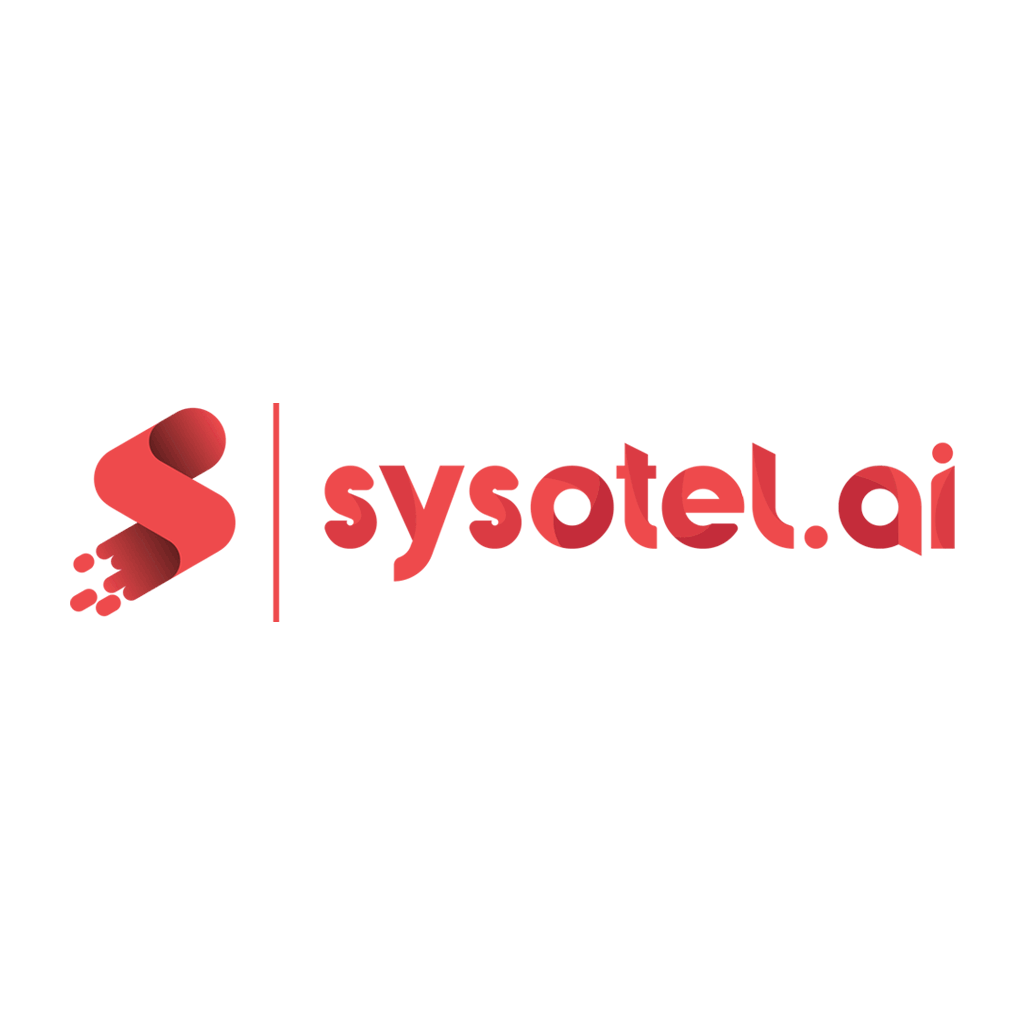What Is Review Management Software?
Review management software, often known as reputation management software, is a digital solution that enables organizations to track, gather, and evaluate client feedback across numerous online platforms. These reviews might take the shape of ratings, comments, or feedback submitted by customers on websites like Google, Yelp, and social media outlets.
This program provides organizations with a unified platform for tracking and responding to internet reviews, allowing them to actively manage their online reputation while also gaining crucial client input. It also enables firms to identify areas for improvement and implement necessary adjustments based on client input. One of the primary benefits of review management software is the ability to aggregate evaluations from numerous sources, allowing businesses to gain a more complete picture of their online reputation.
It also provides sentiment analysis, which use natural language processing to examine the tone and emotions expressed in evaluations. Furthermore, review management software enables businesses to interact with customers by reacting to reviews in a timely manner, whether favorable or bad. This not only demonstrates that the company values its customers' feedback, but it also helps to develop confidence and credibility among potential customers who read reviews.
Some review management software also includes advanced capabilities such as review generating tools, which automate the process of gathering client feedback, and review monitoring, which notifies organizations when new reviews are submitted.
What Are The Recent Trends In Review Management Software?
The world of business and marketing is continuously changing, and with the advent of the digital age, customer evaluations have become an important part of a company's online presence and reputation. Review management software is a useful tool that allows organizations to monitor, respond to, and analyze customer feedback across several platforms. In recent years, the need for review management software has increased dramatically, resulting in the emergence of new and innovative trends in this field. As a prospective buyer, it is critical to stay current on these trends in order to make an informed selection when selecting the best review management software for your company.
1. Artificial Intelligence (AI) Integration: As technology progresses, more review management software incorporates AI to assist organizations in collecting and analyzing data from customer reviews. This allows businesses to acquire significant insights into customer sentiment, trends, and patterns, enabling them to make data-driven decisions.
2. Multi-Platform Management: With an expanding number of platforms where customers can leave reviews, it is critical for firms to manage their reputation through several channels. The latest review management software provides multi-platform management, allowing businesses to reply to reviews from many sources, including Google, Facebook, and Yelp, all in one spot.
3. Automated Review Response: Gone are the days of manually replying to each review. Review management software may now automatically respond to repetitive, routine evaluations, saving firms time and effort. This tool also ensures that no reviews fall between the cracks, which increases overall customer happiness.
4. Social Media Integration: Social media has become an essential tool for businesses to communicate with customers and manage their online reputation. Review management software now includes social media integration, allowing businesses to monitor and reply to reviews on social media platforms, making it easy to keep up with online conversations.
5. Customizable Reports: Data is essential for making informed company decisions, and review management software provides informative reports with customizable metrics. From sentiment analysis to review response rates, customisable reports offer vital insights into consumer perception, performance, and opportunities for improvement.
Benefits Of Using Review Management Software
Review management software is a vital tool for businesses of all kinds that wish to maintain a strong online reputation and keep up with consumer feedback. This program simplifies the process of monitoring, reacting to, and evaluating reviews across multiple platforms, including social media, review sites, and search engine results. One of the primary advantages of utilizing review management software is the ability to save time and effort.
Without this software, firms must manually check several platforms for reviews and feedback, which may be time-consuming. With review management software, all reviews are automatically collected and grouped into a centralized dashboard, making it easier for businesses to monitor their online reputation. Furthermore, review management software enables firms to reply rapidly to reviews and address bad criticism.
This is crucial because reacting to evaluations, whether positive or bad, demonstrates that the company appreciates its consumers and is dedicated to providing exceptional customer service. Businesses can use review management software to measure response rates and times, ensuring that all reviews are acknowledged and answered as soon as possible. Another benefit of employing review management software is the opportunity to derive significant insights from consumer feedback.
Most review management software incorporates sentiment analysis, which can assist firms understand the overall tone of their reviews. By studying reviews, businesses can identify areas where they excel and areas where they need to improve, allowing them to improve their products or services and better meet the demands of their customers.
Review management software can also assist firms track their competitors' online reputations. This enables organizations to stay informed about their competitors' strengths and shortcomings and identify opportunities to differentiate themselves in the market.
Important Factors To Consider While Purchasing Review Management Software?
When choosing review management software, buyers should examine a number of critical factors. With the development of internet reviews and their impact on a company's reputation, it is critical that organizations have a tool for properly managing and responding to client comments.
1. Functions: The first thing to evaluate is the variety of functions provided by the review management software. Common features include review monitoring, reputation management, sentiment analysis, and review production. Businesses should examine their specific requirements and select software that includes the most relevant functionality for their sector and target audience.
2. Integration: The software should be interoperable with the business's other platforms and tools, such as social media management tools, CRM systems, and eCommerce platforms. This will result in a more fluid and efficient workflow, eliminating the need for manual data entry.
3. Customization: Each firm has its own unique brand image and voice, and review management software should allow for customization to ensure consistency. This includes the opportunity to integrate logos, brand colors, and personalized feedback in evaluations.
4. User-Friendliness: The software's interface should be simple and intuitive. This is especially crucial in firms where numerous team members use the program. A convoluted system may cause confusion and errors, reducing the accuracy and efficiency of review administration.
5. Reputation Management: The major goal of review management software is to improve a company's online reputation. Look for software that provides tools and tactics for increasing good ratings and reducing negative ones. This includes features like review monitoring, reacting to reviews, and soliciting feedback from satisfied consumers.
6. Pricing: The cost of review management software varies greatly depending on its features and customization choices. Businesses should evaluate their budgets and select software that provides the best value for their requirements. It is also critical to examine any additional charges, such as setup fees and monthly subscriptions.
7. Customer Support: As with any software, it is critical to have dependable customer help in the event of any technical problems or questions. Look for software that provides many support channels, including live chat, phone, and email, as well as an educated and responsive workforce.
What Are The Key Features To Look For In Review Management Software?
When it comes to choosing the best review management software for your organization, there are numerous crucial things to consider. These capabilities can significantly improve the effectiveness and efficiency of your review management process, enabling you to better manage and respond to consumer comments.
The following are the key features to look for in review management software.
1. Review Monitoring: A decent review management software should include real-time monitoring of reviews from numerous platforms, including Google, Yelp, Facebook, and others. This feature allows you to keep track of all the reviews your company receives and respond quickly.
2. Sentiment Analysis: This feature employs natural language processing (NLP) technology to assess the sentiment of customer evaluations. It can assist you in identifying and prioritizing bad reviews, allowing you to respond quickly and enhance customer satisfaction.
3. Review Aggregation: Review aggregation allows you to collect and show reviews from numerous platforms in one location, making them easier to manage and reply to.
4. Customizable Response Templates: With this tool, you can construct pre-defined response templates for commonly asked inquiries, typical concerns, and general responses. This saves time and assures consistent review answers.
5. Review Generation: Some review management software includes options for generating more reviews from delighted consumers. This can be accomplished using automated review requests, email campaigns, or in-store kiosks.
6. Reputation Management: A reputation management tool enables you to watch and manage your brand's online reputation by tracking mentions and reputation scores across the web.
7. Analytical Insights: Look for review management software that provides thorough stats and insights for each review. This will give you vital insights into your customers' comments and allow you to make data-driven decisions to better your business.
8. Multi-Language Support: If your company serves consumers from several nations, it is critical to select review management software that supports multiple languages. This allows you to react to client feedback in the language they prefer.
9. Mobile App: With a mobile app for review management, you can remain on top of your reviews even while on the go. It's a useful tool for business owners and managers who are constantly on the move.
10. Integrations: Finally, ensure that the review management software is compatible with your current business tools, such as CRM, help desk, or social media management software. This will simplify the review management process and save you time.
Why Do Businesses Need Review Management Software?
In today's digital world, internet reviews may make or break a business. Positive feedback can attract new consumers and strengthen your reputation, whilst bad feedback might drive potential customers away and harm your brand image. Here's where review management software comes in. Review management software enables businesses to effectively monitor, respond to, and analyze customer feedback across several platforms, including Google, Yelp, and Facebook.
It simplifies the process of handling internet reviews by providing a unified platform where businesses can track and reply to evaluations in real time. One of the primary reasons why organizations use review management software is to maintain a great internet reputation. With the rise of social media and online review systems, customers can now affect a business's perception with a single review.
Review management software assists organizations in managing their online reputation by giving tools for responding to both positive and negative reviews in a timely and professional manner. Furthermore, review management software can help companies better understand their customers. The software delivers significant insights and analytics about customer attitude and behavior, enabling businesses to detect patterns and make strategic decisions to improve their products or services.
This information can also assist organizations recognize their strengths and shortcomings and modify their marketing strategies accordingly. Another advantage of review management software is the potential to increase search engine visibility. Online reviews are an important feature in local SEO since search engines interpret them as a reflection of a company's reliability and relevancy. Businesses that proactively manage and respond to reviews can enhance their search engine ranking and attract more clients.
How Much Time Is Required To Implement Review Management Software?
Implementing review management software can take time based on a number of factors, including the size of your company, the level of customization required, and the complexity of your current review management process. However, the usual implementation period for review management software is between a few weeks and a few months.
The first step in deploying review management software is to select a vendor who can tailor a solution to your company's specific requirements. This includes studying and evaluating various possibilities, obtaining demos, and reviewing pricing plans. This stage may take many weeks, but it is critical in determining the greatest fit for your company.
Once you've chosen a provider, the real implementation process usually entails configuring the software, connecting it with other current systems, and teaching your team on how to utilize it efficiently. This stage can take a few weeks or months, depending on the level of customization required and the size of your company. It is crucial to understand that deploying review management software is a continuous process.
To guarantee that it is beneficial for your organization, it must be monitored and adjusted on a regular basis. As a result, following the first installation, you should set aside time to examine and optimize your review management plan on a regular basis.
What Is The Level Of Customization Available In Review Management Software?
When it comes to maintaining your brand's online reputation and receiving crucial client feedback, having adaptable and configurable review management software is critical. This powerful tool enables firms to customize their review management tactics based on their unique needs and goals. Most review management software alternatives offer a wide range of customization possibilities, allowing organizations to take a distinct and individualized approach to managing reviews and online reputation.
The modification options include:
1. Branding: A good review management software allows businesses to personalize their branding components, such as logos, color schemes, and fonts, ensuring a consistent and professional appearance throughout all review platforms.
2. Review Collection Methods: Businesses can choose whether to collect consumer evaluations by email, SMS, or in-store kiosks. This level of personalization enables businesses to collect evaluations in the most comfortable and efficient manner for their customers.
3. Review Filtering And Sorting: Review management software allows organizations to filter and sort reviews based on specified criteria such as date, star rating, and keywords. This enables firms to swiftly detect and resolve any issues presented by customers.
4. Review Response Templates: Many review management software packages include customized templates for replying to reviews. This tool saves time and allows firms to keep a professional and uniform tone in their responses.
5. interfaces: Custom interfaces with social networking platforms, Google My Business, and other review sites enable businesses to expedite the review management process and access all reviews in one location.
6. Reporting And Analytics: With customizable reporting and analytics options, organizations can watch their overall review performance, uncover trends and patterns, and make data-driven decisions to improve their online reputation.
Overall, the level of flexibility offered in review management software is critical in enabling organizations adjust their review management tactics and retain a strong brand reputation. When selecting the best review management software for your company, make sure to examine the level of customization available to match your specific needs and objectives.
Which Industries Can Benefit The Most From Review Management Software?
Review management software can be a useful tool for firms in a wide range of industries. It enables businesses to monitor, respond to, and analyze client feedback from different platforms in a one spot. This not only saves time and effort, but it also allows businesses to keep track of their internet reputation, which leads to higher customer satisfaction and retention. However, which industries will profit the most from review management software? Let's have a closer look.
1. E-commerce: In today's digital age, internet reviews have a significant impact on a customer's purchasing decision. E-commerce enterprises can considerably benefit from review management software since it allows them to actively monitor and manage their online reputation across multiple platforms, including Amazon, Google, and social media. By reacting to reviews and addressing any complaints, e-commerce companies can improve their brand image and credibility, resulting in greater sales.
2. Hospitality And Tourism: The hospitality and tourism industries rely significantly on reviews to recruit new consumers and keep existing ones. Review management software allows hotels, restaurants, and travel organizations to monitor and reply to reviews on major platforms such as TripAdvisor, Booking.com, and Yelp. Businesses may preserve a positive online reputation and improve the overall guest experience by responding to any unfavorable reviews as soon as possible.
3. Healthcare: As more patient reviews are shared online, the healthcare industry can profit substantially from review management software. It enables doctors, hospitals, and clinics to monitor and respond to patient reviews on sites like Healthgrades and Zocdoc. Healthcare institutions may develop trust and attract new patients by responding to criticism and providing outstanding patient care.
4. Service-Based Enterprises: Service-based businesses, such as salons, car dealerships, and home repair services, might profit from review management software. It enables them to monitor and respond to reviews on sites such as Google, Facebook, and Yelp, which are often used by potential clients. Service-based firms can enhance their reputation and attract new customers by actively monitoring their online reviews.
5. Software/Technology: As the software and technology industries expand, competition intensifies. Review management software can help these firms gain an advantage by allowing them to monitor and respond to consumer feedback on prominent sites such as G2Crowd and Capterra. Software/technology companies can obtain a competitive advantage by responding to client problems and displaying positive evaluations.
Conclusion
Finally, investing in review management software is critical for firms of all sizes. It not only facilitates the easy management and monitoring of online reviews, but it also provides vital insights into how to boost brand reputation and sales. When selecting the best review management software for your company, examine the features and benefits it provides, as well as the cost and customer service.
It is critical to choose a platform that suits your individual requirements and provides customisable solutions. Keep in mind how important reputation management is and how it might affect your business. With the correct review management software, you can reply to reviews proactively, gain customer trust, and maintain a positive online reputation. Do not underestimate the impact of online reviews and their influence in influencing customer purchasing decisions.
With review management software, you can maximize the value of consumer comments. Finally, don't be afraid to invest in reputable and effective review management software. It will not only save you time and resources, but will also help your company stand out in a competitive industry. Choose wisely and see your brand's reputation and consumer loyalty skyrocket.






















SocialProofed
SocialProofed is a tool for effortlessly integrating Instagram feeds, Facebook reviews, and Google testimonials into your website. In under a minute, enhance your businesss credibility and trustworthiness with genuine social proof. Sign up now for fr...Read More SocialProofed